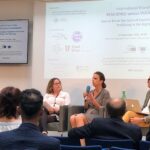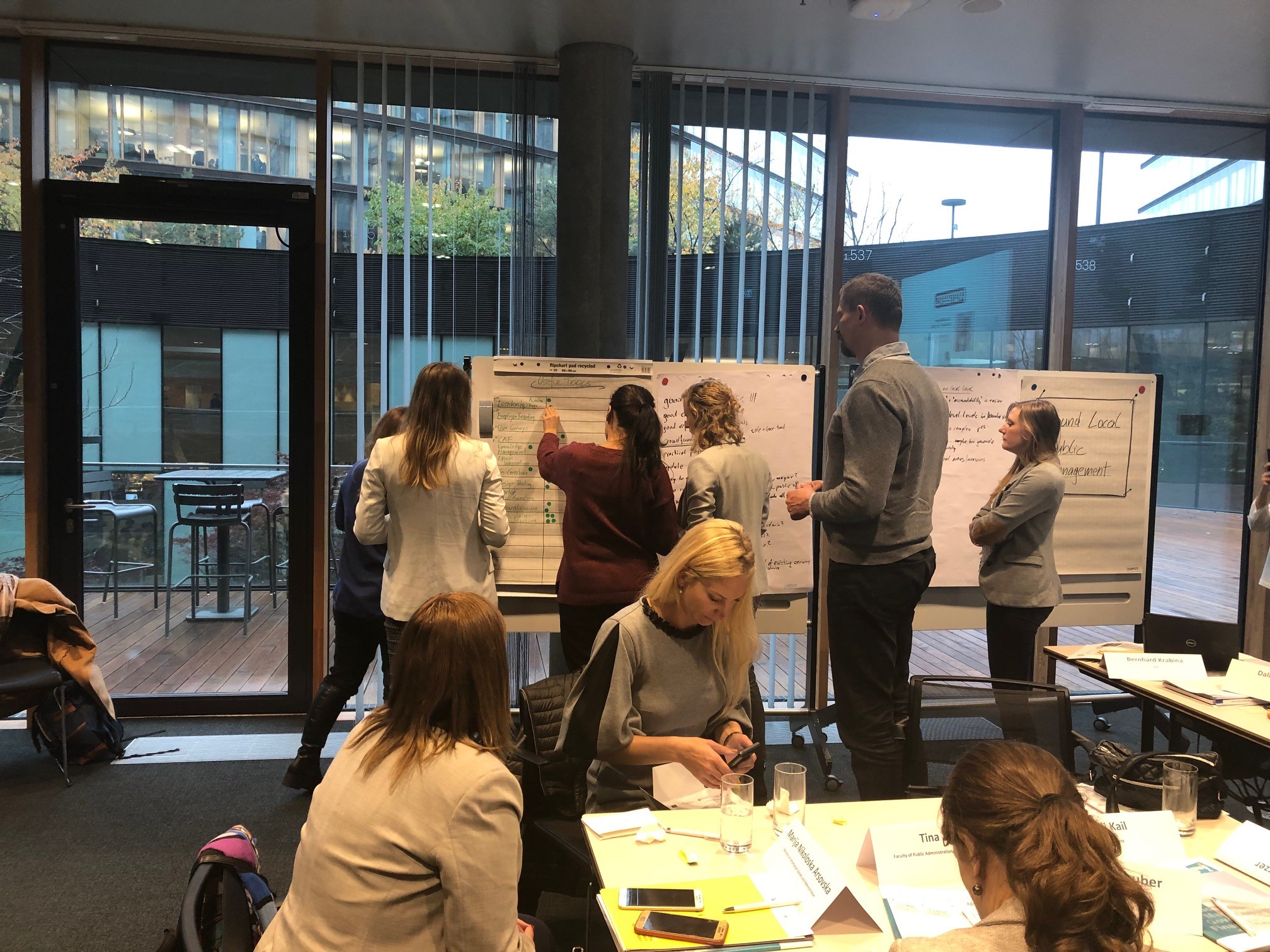What are the most essential aspects of effective and citizens oriented public management in cities and municipalities? How can local administrations in the Danube Region improve their performance? The coordination team of Priority Area 10 “Institutional Capacity and Cooperation” invited experts to exchange on inspiring practices and preconditions for good governance and high quality in local administrations that will be integrated in the policy paper “Sound Local Public Management”.
Cities and municipalities play a vital role for the well-being of citizens. Local politicians and public authorities make decisions to contribute to a well-functioning community and provide essential services for their local inhabitants. In doing so, local public authorities need to find ways to deliver effective, sustainable and high-quality public services and procedures in order to create a viable framework for a high quality of life. At the same time, local authorities struggle with scarce resources and cumbersome bureaucratic structures that no longer reflect the requirements of citizens and public management.
How to do sound public management
Hence, Priority Area 10 Institutional Capacity and Cooperation of the EU Strategy for the Danube Region (EUSDR) invited a group of experts and practitioners to exchange on core values, required capacities, and inspiring practices for sound local public management with a particular focus on the Danube Region. On 5 November 2019, representatives from public administration, research, and policy development gathered in Vienna to provide inputs that will be integrated in the policy paper on “Sound Local Public Management” that is expected to be published by the end of this year. The policy paper aims at providing a brief guidance and practical recommendations for local decision makers and public employees for enabling conditions and requirements for sound public management. The paper builds upon the knowledge of existing guidance notes and tools and puts them in the context of cities and municipalities in the Danube Region.
Inspiring methods and tools
The expert group presented insights from various methods and tools for sound public management with a special focus on quality management and citizens oriented policy-making.
Common Assessment Framework (CAF)
Philip Parzer, KDZ – Centre for Public Administration Research, presented the Common Assessment Framework (CAF). The tool aims at improving the performance of public-sector organisations across Europe. Public authorities have the chance to assess and improve their performance along 9 criteria including leadership, people, people results, strategy and planning, partnership and resources, processes, citizen-customer results, social responsibility, and key performance results. In doing so, public authorities involve their staff from different departments and boost institutional learning and innovation.
Knowledge Management
How institutions deal with knowledge as a resource is directly contributing to the quality of administrative performance. Hence, Michal Sedlacko, FH Campus Wien, showed in his presentation why public authorities should be aware of different forms and sources of knowledge within the organisation and why they are recommended to develop an integrated knowledge management. As integrated knowledge management includes a strategy with clear objectives and indicators as well as processes and tools, it helps institutions to store knowledge and enhance learning to improve processes and outcomes.
Open Innovation
Lisa Schmidthuber, JKU, explained how participatory approaches and digital tools can help local authorities to adapt their administrative processes, find solutions to local challenges, and establish a good connection between public administration and citizens. Public authorities can use Open Innovation tools to reduce the use of resources, create mutual trust, and make use of the innovative potential of their stakeholders. However, how open innovation tools can or should be used needs to be assessed on an individual basis in order to avoid repercussions.
Co-Creation of Public Services
The COGOV project funded by Horizon2020 addresses capacity building for co-designing policies. Tina Jukic, University of Ljubljana, presented the toolkit that aims at supporting public authorities to assess their level of maturity for engaging in co-creation processes and provides recommendations for improving performance in order to launch citizens oriented decision making processes.
Design Thinking Method
Re-thinking processes or services often requires to think outside the box and to challenge traditional thinking and labour patterns. Against this background, Lisa Höllbacher, Pioneers, presented the design thinking method that includes different points of views to develop innovative solutions for the challenges citizens are facing.
Next steps
The participants discussed these and other practices and their potential to support local administrations in the Danube Region to enhance their performance. The most promising examples will be included in the policy paper on “Sound Local Public Management”.
The workshop took place back-to-back with the DigitalDays Vienna and was organised with the support of KDZ – Centre for Public Administration Research.






